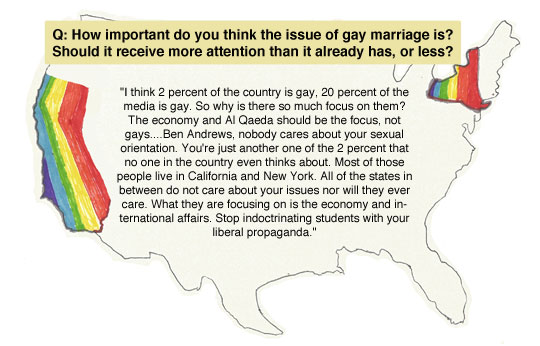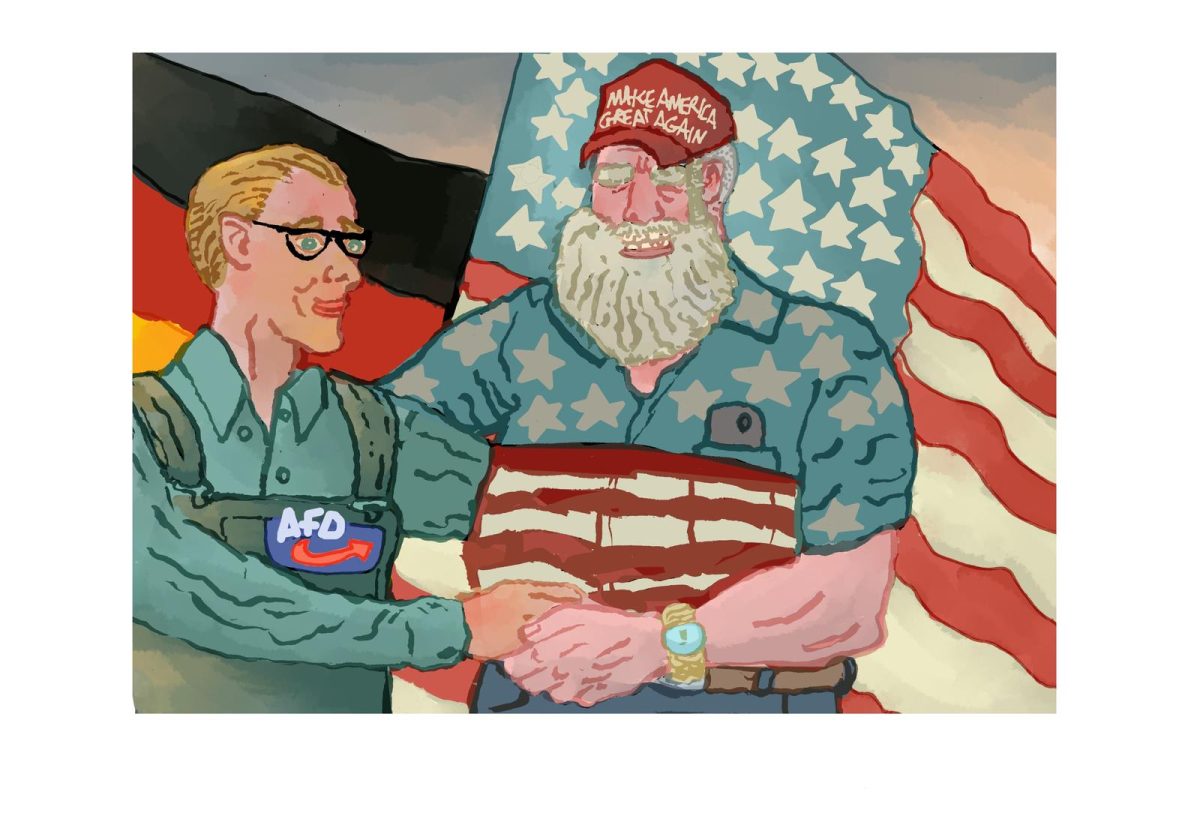
I wish I could live in a world where no one cares about my sexual orientation.
There are a lot of things in life I would have gladly avoided without having to cope with the social stressors of homophobia and hate.
I wish I’d never been called a fag or a faggot. I wish I hadn’t been kicked out of a private Christian high school when I came out at 15. I wish I hadn’t spent years trying to repress my desires and date a woman in an attempt to become straight.
I wish I’d had access to a relevant sexual education and health care in my hometown of Palmdale. I wish hadn’t suffered the backlash from repression and engaged in risky sexual behavior when I came to college and came out for the second time.
I wish I hadn’t gone through depression and self-loathing. I wish I didn’t get anxiety when I walk into a church. I wish who I am didn’t matter to my father, who is a Lutheran pastor. I wish I didn’t have to worry about who I could love or if I’ll be able to walk down the aisle with the support of my family, friends, church and community.
I wish I didn’t have to write something like this to defend myself.
This section ran an editorial Sep. 17 asking, “Is gay marriage a wedge issue?” The story was shared on our Facebook page, giving people a space outside of the comments section to answer the same question. A few individuals responded with insensitivity toward the issues of gay marriage and civil rights for lesbian, gay, bisexual, transgender (LGBT) or queer people. One commenter claimed that only 2 percent of the country is affected by these issues and that most people are more focused on the economy than the civil rights of these Americans.
To assert that this issue only concerns 2 percent of the population is ludicrous. To say that only people in California and New York have any opinion about gay marriage or queer issues in general is mind bogglingly ignorant. Beyond the fact that queer people exist in every state, city and town in the United States, the issue affects more than just us queers. LGBT issues affect our friends, our family and co-workers. These issues affect every aspect of our nation from our economy to our military and government.
A common tactic used to make discrimination more acceptable is to marginalize those being discriminated. This often turns into a game of numbers. Anti-gay groups claim that the queer population is only two percent, saying that that is too small and insignificant to matter. Many LGBT advocacy groups claim that the LGBT population is closer to 10 percent of the country and therefore too many people to ignore.
The actual demographics are very hard to determine because there is little consensus on how to accurately define who is LGBT.
According to a study done by Gary J. Gates at the Williams Institute of UCLA, 3.8 percent of the population self-identify as LGBT-roughly 9 million people. However, it is important to consider the difference between self-identification and sexual or romantic behavior.
In another article by Gates written earlier this year, he estimated that the population of people who report same-sex attractions and same-sex behaviors in their lifetime is even higher. Gates found that 19 million Americans (8.2 percent of the country) reported that they have engaged in same-sex sexual behavior and nearly 25.6 million Americans (11 percent) acknowledged at least some same-sex sexual attraction.
Whether you define the LGBT population by identity, community, sexual behavior or some intersection of all three, it’s clear that the non-heterosexual, non-heteronormative population is well above 2 percent. But the numbers should not really matter in the end.
“Today, the size of the LGBT community is less important than understanding the struggles of its members and informing crucial policy debates with facts rather than stereotype and anecdote,” Gates said.
How we treat self-identifying queer people is central to defining our cultural and national values in the 21st century. Do we believe in equality for everyone regardless of race, sex, gender identity, or sexual orientation? Or do we choose to discriminate against our fellow human beings because they are a minority that we either don’t care about or don’t understand?
As for the relevance of the question, it’s quite timely for us to ask, taking into account that we are in the height of an election cycle where both major parties have made same-sex marriage a key issue in their platform. It has also become a political symbol and rallying point for those who either support the queer community or oppose it. Because our economy and society in many ways is based on the family unit, what we consider family is imperative to creating public policies.
To sweep it away under the rug and say no one really cares is irresponsible. To pretend that this country has become so tolerant that gay people should just shut up and not complain about their problems is cruel.
If I lived in a world where no one cared about my sexual orientation, I’d be much happier and healthier. But more than that, I wish I could live in a society that wasn’t just content with being tolerant. I wish I could live in a society that was queer positive, proactive and life-affirming.
Until then, our society will be defined by whether or not we can continue the long march towards equality or if we will turn back to the dark ages of rampant discrimination.





